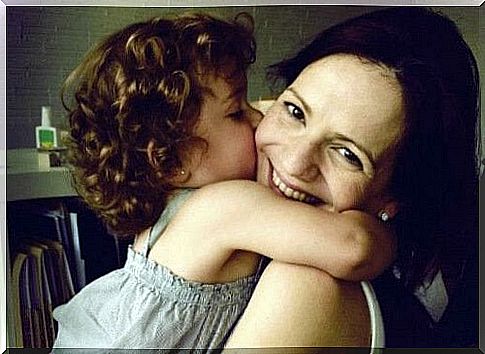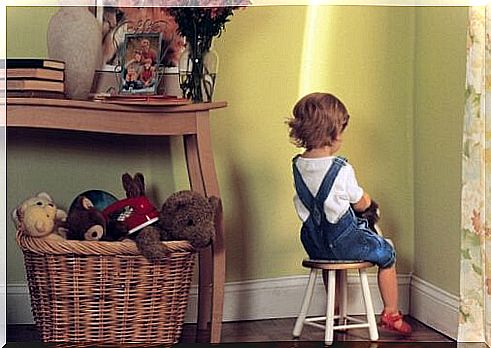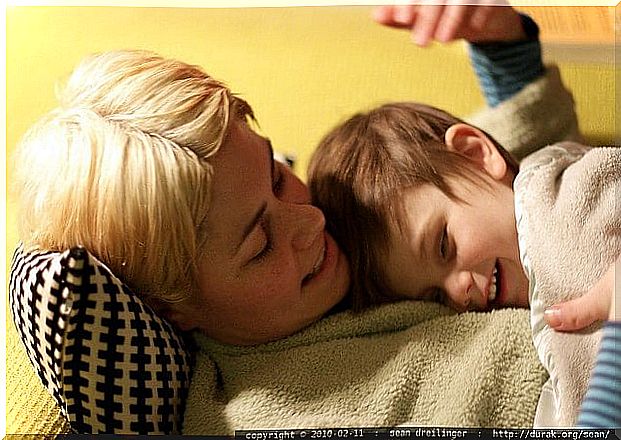Difficult Children: Easy Ways To Help

So-called “ difficult children ” are often condemned, branded and misunderstood. Is it not so? And yet it is precisely these children who may need our help more than others.
It is no doubt true that this is a very difficult endeavor, but today we want to help you with it.
We are going to give you some advice on how to help these very needy children. Do not worry! It will be very easy! You just have to give us a little attention, that’s all!
Caught with no way out…. this is how difficult children feel . They feel trapped in their own little world, trapped in a shell that does not allow them to express their fears.
Airtight, no doors, no windows, not even the slightest crack. So it is up to us patiently to find a way to free these little ones.
Difficult Children: How to Help Them
First and foremost, you have to spend a lot of time with them, coupled with a good dose of patience, difficult children need just that. You may already know that, but a little reminder never hurts.
What is very clear is that all of our efforts will be worth it. All the attention we give the child will bring positive results and make them better people in the future.
Often overwhelmed by the circumstances, both fathers and mothers see the mission of raising children as something of a challenge.
However, if we look at it that way, we are indirectly placing a negative burden on our child’s upbringing, and that will make things much more difficult and stressful.
On the other hand, if we change our mindset and be more positive, the path becomes much easier.
Often times, parents are frustrated with the uncertainty that arises from not knowing how to do the right thing. So far nothing they have tried seems to work. But let’s try to stay calm because there is no instant cure.
Dealing with emotions
So-called “difficult children” are those who have not yet learned how to handle emotions properly. For this reason, their behavior towards others appears unreasonable.
However, all they are trying to do is defend themselves against the world. A difficult child can often perceive the world with such hostility that it can only react defensively. It’s the only way that knows.
To help a difficult child, you don’t have to make your life overly complicated. What we explain to you will make your life even easier.

Everyone is different, unique and incomparable. Because of this, every familiar piece of advice we may hear is not necessarily the right one.
Despite the good intentions people have in giving advice, it is best to always consult a specialist and consider professional recommendations.
Why? This way, you avoid, right from the start, following an approach that worked for another child at some point in their life but is useless for your child. At least for the moment. Maybe later. The specialist will tell you when and how to proceed.
Our first piece of advice is very simple: stop saying you have a problematic or difficult child. Yes, you’ve read that correctly. And here comes another revelation: Difficult children do NOT exist.
No problem!
Even if subconsciously, the words we use define how people grow emotionally. The word “problem” doesn’t sound nice, pleasant, or good in any way.
If you choose to use a different word it will be much more beneficial. For example, the word “situation” simply implies a number of factors in certain circumstances. A fleeting question. Just one more step.
If we take the problem as a further step, we have an immediate advantage.
We immediately feel like we are just going through one particular situation where we simply need to look for a means to move forward. Doesn’t that sound much better?
A problem, on the other hand, sounds like we have to stop because something is wrong. This “bad” thing triggers negative feelings and emotions: fear, tension, stress, grief, depression, and so on. Not good!

A positive attitude relieves us of stress and frustration
Second, we advise you to be patient with yourself. As a mother, you also have to take care of yourself so that you can be your child’s “lifesaver” in this phase of life.
If you are with the specialist, you should explain to him how you feel, what you think and what else you want to say to him so that you can lead a healthy emotional life.
There is something that you should always know: every child needs patience, love and understanding. But, if you don’t know how to love and understand yourself, and if you are not patient with yourself, then you will not be able to teach these qualities to your little one.
Understanding his or her emotions is the key to success. It doesn’t have to be complicated.
Most likely, difficult children will resist at first until they realize they can drop their cover and that nothing and no one is going to hurt them.
The secret is to build solid connections based on constant communication and unconditional affection. Under no circumstances should you let it isolate itself.
Don’t neglect your child, they need you more than anyone else. If you take care of your child and show him unconditional support, you will see that his love will grow and he will reward you for it multiple times.
But be careful! This reward is not the reason to help him. Your goal should simply be to see your child happy and healthy.
The difficult path to success
No doubt you will be walking down a winding road. For this reason, you always need to provide protection and security so that your child feels comfortable when they want to express their suppressed emotions.
Only in this way will it be possible to get to know yourself and to relieve yourself with absolute freedom and in an appropriate manner.
Also, avoid looking for a scapegoat. There are no guilty parties here. Difficult children are not necessarily the result of poor upbringing.
If they need extra attention, understanding, and support, give it to them. If not, they will feel overwhelmed because they just don’t know how to avoid behaving “badly”.
Most of all, helping a difficult child means finding the most creative strategies to meet their needs. The central point is to help him cope with the emotional tsunami that is overwhelming him.
For this reason, Emotional Intelligence is offered as a resource to channel and relocate feelings:
- It works towards positive reinforcement and is of great help with difficult children. Don’t focus on the mistakes, as this will only increase the child’s anger and agony. Expressing trust in your child and conveying security is particularly important. Say positive words to him when he is doing things well.
- It promotes communication without prejudice, comparison or labeling. Avoid lengthy interrogations. You just have to find the right moment to chat with affection and empathy. Communicate in a friendly tone, calm, sincere, and in a calm voice. Never mock or humiliate your child. Besides, you shouldn’t be ironic either.
- Your child needs to achieve an inner balance. Let them express their emotions in just one word. He should try to convey his feelings in the right way to get relief. Let them act out their feelings in a controlled way, knowing that you will always listen to them and always advise them.
- With it, he learns to relax, which is absolutely essential for difficult children. Teach him to take deep breaths and channel his emotions through various methods and techniques to get rid of problems. Teach him to listen and to tolerate frustration.
If you follow these steps, you will soon see progress and see that your child will soon be much more controlled and positive with their emotions.









